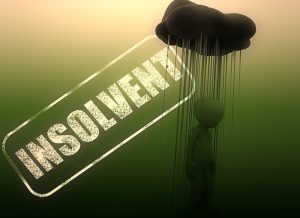What is wrongful trading?
The offence of wrongful trading is set out in the Insolvency Act 1986 Section 214. That section applies to a director if the company ultimately ends up in insolvent liquidation and at some point prior the directors knew or ought to have concluded that there was no reasonable prospect of the company avoiding insolvent liquidation.
The penalty is personal liability for the directors and this is usually calculated on the increase in the level of creditors from the point that they should have known to the point of liquidation.
There is a defence available to directors. The Courts will not make an order for the directors to pay if it is satisfied that the directors took every step with a view to minimising the loss. Every step though is a high hurdle to jump.
If this offence is to be suspended what does it actually mean?
For wrongful trading to be a concern for director lets rephrase the wrongful trading offence. i.e
It must mean that the directors now (or at some point prior to liquidation) conclude or ought to have concluded that the business IS going into insolvent liquidation and that the creditors ARE going to increase.
Let’s just stop and think about that for the moment and break it down.
Conclude or ought to have concluded
At some point, before the company goes into liquidation the directors knew (or ought to have known) that the company could not avoid liquidation. Its difficult for directors to know that at any given point liquidation is inevitable. For example, if the directors believe that by obtaining a loan to finance the short term cashflow will avoid liquidation, they cannot really be criticised for seeking that loan even if it is ultimately not successful in obtaining that loan. My standard advice to directors is to document the reasons for your decisions at the time that you make them. Decisions should be taken with the belief that the outcome of the decision will avoid liquidation. Directors should always reevaluate their plans if the position changes. For example, if the loan that was applied for is denied, this should be a point where a different plan is required, which may mean that liquidation becomes the answer.
Is going into insolvent liquidation
The offence of wrongful trading under Section 214 only applies if the company goes into liquidation. Or put another way if the company doesn’t go into liquidation directors will not have to worry about wrongful trading.
Creditors are going to increase
For there to be an order for directors to contribute to the assets of the company there must have been a loss to the company. Caselaw has interpreted this as meaning an increase in the level of the creditors’ indebtedness. So for the suspension of wrongful trading as an offence to have any meaning, it must be the case that Government expects companies to increase creditors before they go into liquidation – if creditors don’t increase then there is no contribution required from the directors. This doesn’t seem right. Directors of an insolvent company have a duty to act in the interests of the creditors generally and allowing the total amount owed to creditors to increase would seem to be a breach of that duty
I don’t see the relaxation of this rule is going to make much difference. What will allow directors to continue is good advice from insolvency practitioners and lawyers. There is a general duty in the Companies Act that once a business becomes insolvent (and all that takes is the inability to pay debts as and when they fall due) that directors must act in the interest of creditors generally. That may be that the business should continue even if it is insolvent if this is likely to lead to a larger recovery than an immediate liquidation. There is no offence of trading while insolvent – it is all about what is in the interest of creditors to maximise their return or minimise their loss.
To survive this crisis directors need to believe that their decisions will ultimately put creditors into a better position than simply closing now.
If you or your clients are concerned about trading on then please get in touch and we can provide advice.


